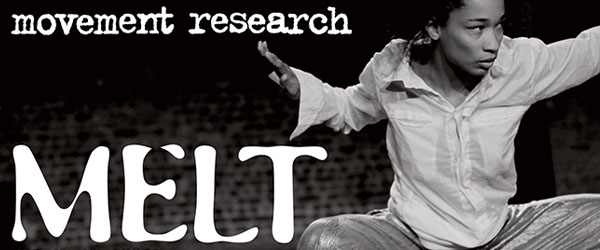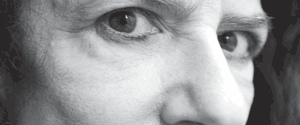Critical Correspondence
- performance
- 3 comments
- Writings
- 12.2.07
Taking the Imperfect Leap
by Clarinda Mac Low
This is the beginning of an investigation. My advance publicity said that I would use this blog to explore the traces that performance leaves behind, both temporary and permanent. The preliminary questions I proposed are “What ideas and shifts in experience do we transmit, knowingly and unknowingly, through performance? How do these ideas live on and ripple through the culture?”
Where do I begin? This deceptively simple investigation has tentacles of complexity growing from its core, and tentacles growing from those tentacles. There are several ways of conducting this inquiry—through an academic lens, through an experiential lens, through a conversational lens, through an intuitive lens, and through many more lenses. After all, this is a phenomenon that is difficult or impossible to measure. The compound eye that examines any phenomenon that has no easily measured parameters will always be as multifaceted as any insect eye. It will take a lot of different lenses, and many eyes, to find a coherent pathway to a meaningful set of thoughts on the matter.
Where do I begin? In conversation with Meg Wolfe, a choreographer based in LA, I mentioned that I was writing this blog, and that all I had were questions. She encouraged me to go with the questions, and I decided to do just that—I have to start somewhere. To me, if performance is about anything it’s about taking that imperfect leap, going forward without knowing the exact consequence of your action, taking a risk. I figure a blog is like a performance in many ways—immediate, interactive, action-oriented.
What ideas do we pass on through performance?
My first thought is that we pass on non-verbal ideas. When I brought this up with several different people, I got some pointed questions. In conversation with Paul Benney and Alejandra Martorell (the other two-thirds of TRYST, a performance intervention group—I am the other third), the conversation that brought this blog into being, I brought up non-verbal ideas. Alejandra questioned whether ideas could be non-verbal; isn’t an idea by definition verbal?
So let’s start from the beginning: What is an “idea?” Is it always something that can be expressed verbally? Can a state of being be an “idea?”
When I watch performance, usually the first thing that strikes me is the way the performers are present—not where they are, or what they’re doing, but how they are. This most intangible of the many intangibles of this here-for-now-then-gone-again form is the first “idea” I take away. How do you exist? The performer does it while being watched, but in that moment of being a conduit for presence, what is passed on?
Ideas are the glue that we create our worlds with. An idea cracks open our patterns and habits and allows a new perspective to pervade our physical spirit, our brain, our emotions—or the amalgam of all of these, the self. From the catharsis of Greek tragedy, contemplating the abyss and finding solace in weeping together, to the cool abstraction of bodies in space, the idea in the situation is the message we take away.
In my mind, ideas = ideology
ways of being/acting/behaving
physical modes
spiritual life
I think all these and more are passed on, in a variety of ways, and as we go along, I’ll discuss it more fully.
You’ll notice that there are several conversations mentioned here. That’s key, in my mind. If performance is a communication, then I think that’s it’s through dialogue that we can make a cogent analysis of its impact. So converse! Respond with your thoughts, ideas, questions and polemics. It doesn’t have to be a treatise; you can just send off a line or two responding to whatever catches your eye. There is no right answer, and probably never will be—there is a collection of perspectives that may give us insight, and that’s a lot. Let get this party started.
Next: More questions, and maybe a few answers.
Check back in two weeks to hear from me, and every day to hear from any number of others.



1:04 pm
June 27, 2010
Comment posted by Ruthie, May 2nd 2008:
Of course ideas can be non-verbal! The verbal is just a different stage of the idea. But as soon as you put an idea into words it becomes a different thing, which is circumscribed by the words. It is an idea, but not exactly equivalent to the idea that was non-verbal before it got verbalized.
1:06 pm
June 27, 2010
good point
Submitted by clarinda on Mon, 05/12/2008 – 4:28pm.
Ruthe makes a good point here–all ideas start out in the soup of brain. The Words are or just one stage. i think i mean–can an idea that is not represented in words still be given the weight of an idea that is represented in words?
post a comment ›